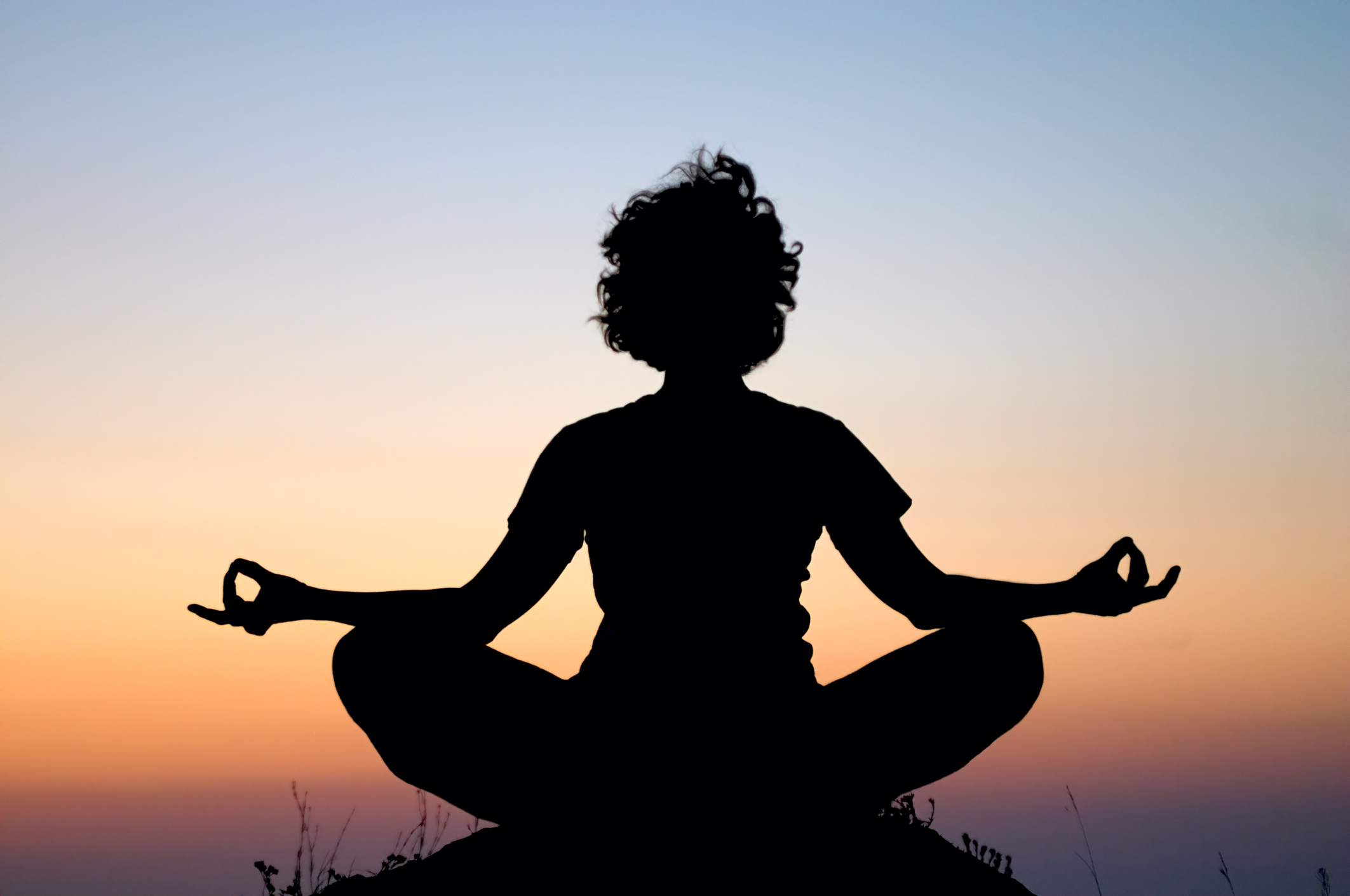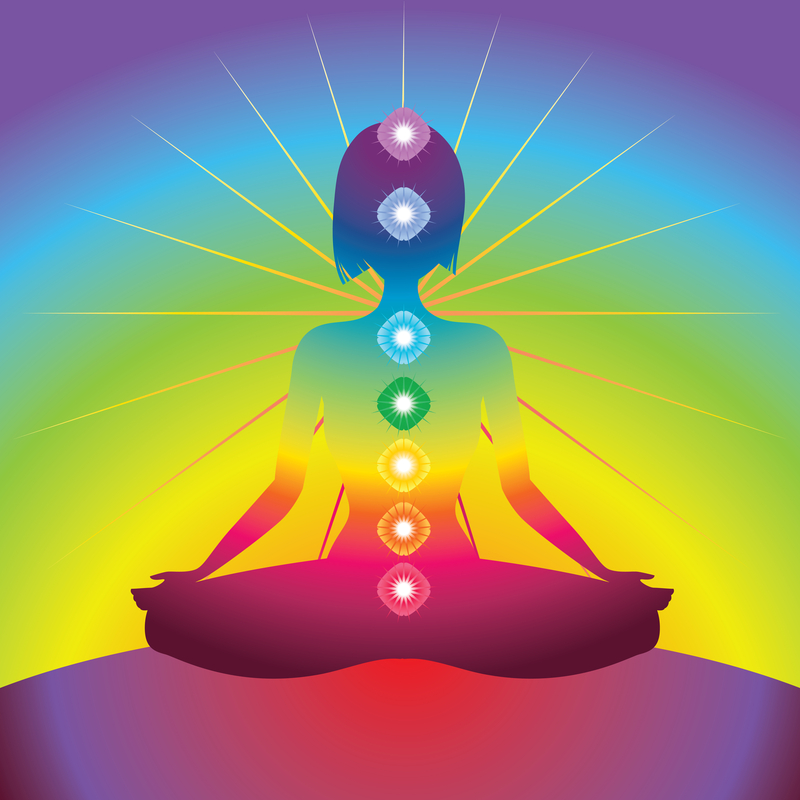What is Meditation?
An explanation on the practice of meditation and its benefits.
What is meditation?
Learning to meditate is one of the biggest boosts you can give your mind, body and spirit. It will sharpen your mind, relax your body and make you feel more in tune with your spiritual side. When you are meditating, you are in a state of passive alertness. This means your body is totally relaxed but your mind is still alert. Meditation is a chance to clear your mind of the multitude of racing thoughts that clog up your thinking in the rush of everyday life. You can quieten your mind by focusing on one element, such as a flame, a sound, your breathing or an image. If you practice meditation regularly, you will feel the benefits. Think of your brain as a muscle - the more you exercise the muscle the stronger it gets. So the more meditation exercise you give your brain, the sharper and stronger it will become.
It is thought that meditation, in the form of rhythmic chanting, has been practised for thousands of years. The earliest written record of meditation is found in the ancient Hindu texts from India. Buddhism has become synonymous with meditation, with followers of this faith believing meditation to be an essential part of their spiritual path to enlightenment.

Effects of Meditation
On a purely physical level, meditation will help your body to relax, lowering your heart rate and giving you a sense of wellbeing. It is thought that the conscious act of relaxation during meditation stops the production of stress hormones (adrenaline and cortisol) and instead helps to release the feel-good hormone, serotonin. So the act of meditation will help you begin to banish your stress and anxiety and bring emotional calm.
Recent research suggests meditation could also help to decrease blood pressure, boost general immunity and help keep pain levels under control. Meditation may sharpen your memory and increase creativity. It appears to integrate the body and the mind, showing that your thoughts have the power to affect your body.
While the practice of meditation has many physical benefits, it is also a key spiritual technique. Known as the gateway into a more spiritual state of mind, meditation is the opening to many different spiritual practices, as well as an end in itself. Spiritual teachers, especially in Buddhism, say that meditation will help you discover your true self and connect with the divine source. Psychics and mediums say they can use meditation to connect with the spirit world.

How to meditate
The basic technique for meditation is very simple and can be attempted by anyone. But that does not mean it is easy to master. You'll need to practise regularly to get the most out of meditation.
- Sit in a comfortable, safe and quiet place where you won't be disturbed. Wear loose comfy clothing and remove your shoes. Sitting on a cushion on the floor with your legs crossed is the suggested position but if you feel more comfortable on a chair, that's fine.
- Close your eyes. Concentrate on your breathing. Let every thought disappear from your mind. Focus on how your breath feels as you draw it slowly in through your nose and out slowly through your mouth. Feel the air circulating gently through your lungs. For this moment only, nothing matters except the sensation of your breathing. Be present in the moment. If a thought pops into your brain, let it flow away from you and bring your focus back to your breath.
Meditate for five or ten minutes at least once a day when you are first starting out.
Benefits of meditation
Everybody responds to meditation differently but here are some of the positives it can bring to your life.
*Spirituality
*Stress buster
*Focus the mind
*Calmness and clarity
*Visualise your goals
*Emotional stability
*Increased physical wellbeing
Types of meditation
Meditation is about freeing your mind from thought chatter by clearing it and putting the focus on one positive element. So if the breathing meditation doesn't suit you, here are some other simple alternatives.

Candle Meditation
Light a candle on a safe, fire-resistant surface. Gaze into the flame. Clear your mind and focus on the flickering shapes it makes. Don't get too close to the flame and ensure it is extinguished when you've finished.
Picture Meditation
Choose a simple nature image such as a waterfall, a lake, the starry sky or a field of flowers. Let your eyes run over the image and feel yourself drawn into it as you empty your mind of all thoughts. Alternatively, you can visualise a favourite scene in your mind's eye instead of from a printed picture. You could imagine the water or breeze in your picture washing away your thoughts and worries.
Also, a mandala is a beautiful spiritual artwork intended for meditation. Look them up online.
Bead meditation
A string of crystal beads to help you count breaths or mantra chants or just to run through your fingers and focus upon. Choose a crystal that resonates with your intentions, e.g. rose quartz for gentle cleansing and love. Concentrate on the shape and feel of each bead as you pull it through your fingers.
Sound Meditation
Pick out your favourite piece of classical music, a favourite positive phrase or just a sound, such as 'om'. Listen to the music, totally immersing yourself in it, to the exclusion of all other thoughts and sensations. Or repeat your positive phrase or simple sound, very slowly, a set number of times - meditation beads may help you keep count.
Submit A Comment
Create a Psychic Sofa account today!
Join the Psychic Sofa Community Today and get access to:
- Get notified by (FREE) SMS text when a reader becomes available!
- Latest offers and members only exclusives
- Add favourite readers to your profile




Comments
No comments have been made yet